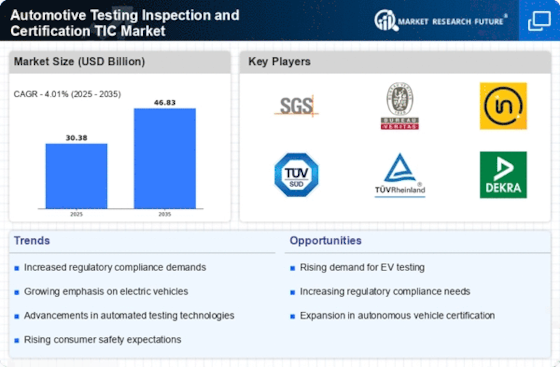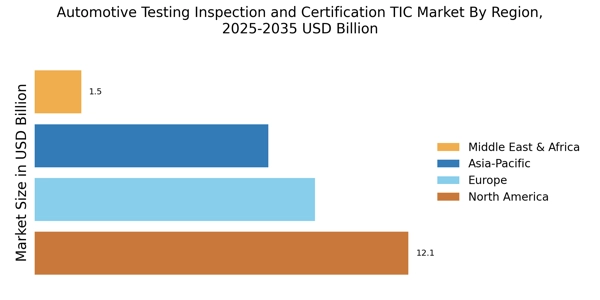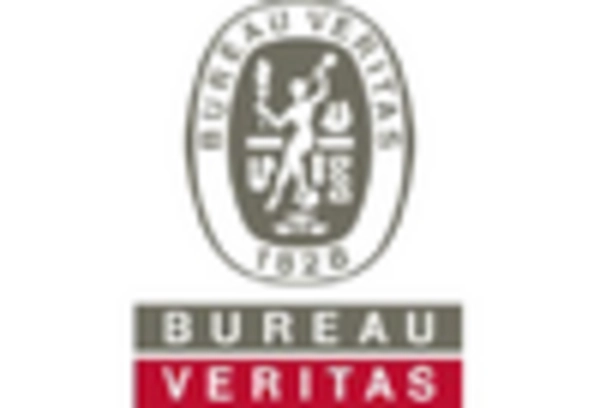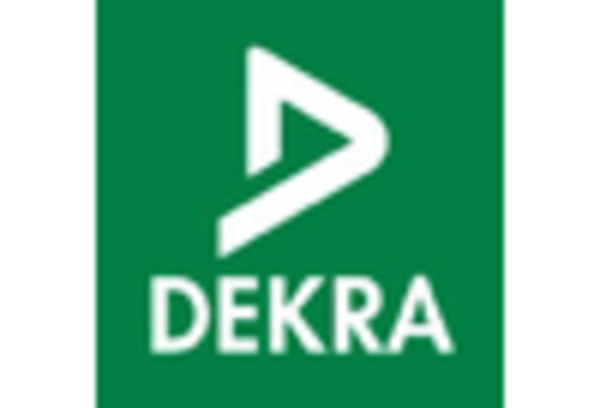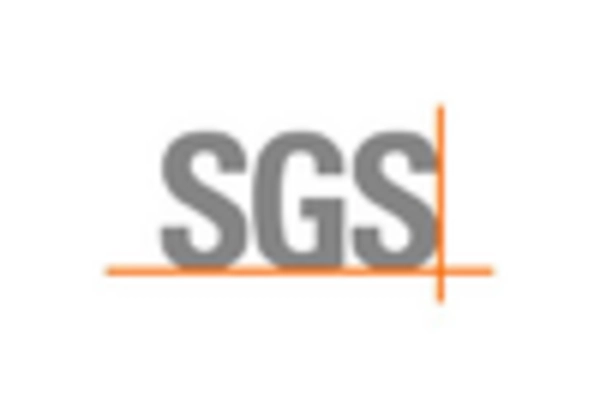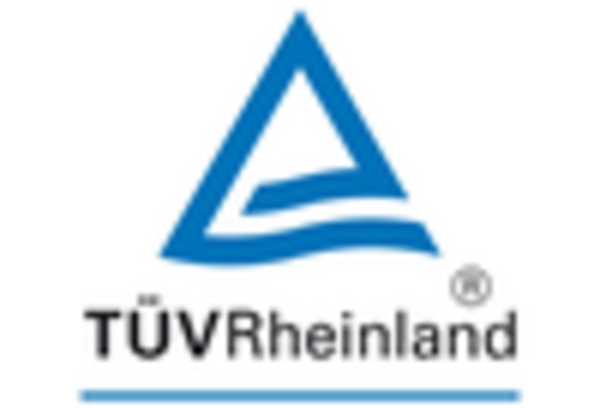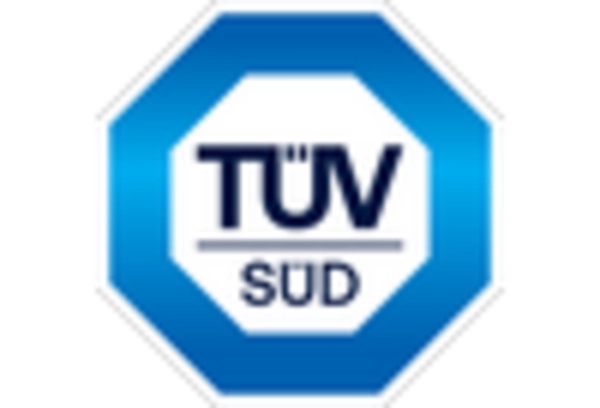Increasing Environmental Regulations
Increasing environmental regulations are driving the Automotive Testing Inspection and Certification TIC Market as governments worldwide implement stricter emissions standards. The push for sustainability and reduced carbon footprints has led to a surge in demand for testing services that assess vehicle emissions and environmental impact. The market for emissions testing is expected to grow significantly, with estimates suggesting a value of USD 5 billion by 2025. Manufacturers are now required to demonstrate compliance with these regulations, which has resulted in a heightened need for TIC services that specialize in environmental testing. The Automotive Testing Inspection and Certification TIC Market is thus becoming increasingly vital in helping manufacturers navigate the complexities of environmental compliance, ensuring that vehicles meet the necessary standards to operate in various markets.
Growing Demand for Vehicle Safety Standards
The increasing emphasis on vehicle safety standards is a primary driver for the Automotive Testing Inspection and Certification TIC Market. As consumers become more aware of safety issues, manufacturers are compelled to adhere to stringent safety regulations. This trend is reflected in the rising number of safety tests conducted, with the market for automotive safety testing projected to reach USD 10 billion by 2026. Consequently, the demand for TIC services is expected to grow, as companies seek to ensure compliance with international safety standards. The Automotive Testing Inspection and Certification TIC Market plays a crucial role in facilitating this compliance, providing essential testing services that help manufacturers meet regulatory requirements and enhance consumer trust.
Technological Advancements in Testing Equipment
Technological advancements in testing equipment are significantly influencing the Automotive Testing Inspection and Certification TIC Market. Innovations such as automated testing systems and advanced simulation technologies are enhancing the efficiency and accuracy of testing processes. For instance, the integration of artificial intelligence and machine learning in testing protocols is streamlining operations and reducing time-to-market for new vehicles. The market for automotive testing equipment is expected to grow at a CAGR of 6.5% through 2027, indicating a robust demand for TIC services that leverage these technologies. As manufacturers increasingly adopt these advanced testing solutions, the Automotive Testing Inspection and Certification TIC Market is likely to experience substantial growth, driven by the need for precision and reliability in vehicle testing.
Expansion of Electric and Hybrid Vehicle Markets
The expansion of electric and hybrid vehicle markets is a significant driver for the Automotive Testing Inspection and Certification TIC Market. As the automotive landscape shifts towards electrification, manufacturers are required to conduct specialized testing to ensure compliance with new regulations and performance standards. The electric vehicle market alone is projected to grow at a CAGR of 22% from 2025 to 2030, necessitating a corresponding increase in TIC services tailored to these vehicles. This shift not only creates opportunities for TIC providers but also emphasizes the need for rigorous testing protocols to address unique challenges associated with electric and hybrid technologies. The Automotive Testing Inspection and Certification TIC Market is thus positioned to benefit from this transition, as it provides essential services that support the development and deployment of innovative vehicle technologies.
Consumer Awareness and Demand for Quality Assurance
Consumer awareness regarding vehicle quality and performance is a crucial driver for the Automotive Testing Inspection and Certification TIC Market. As consumers become more discerning, they demand higher quality and reliability from automotive products. This trend is reflected in the increasing number of quality assurance tests conducted by manufacturers, as they strive to meet consumer expectations. The market for quality assurance testing in the automotive sector is projected to grow at a CAGR of 5% through 2026. Consequently, the demand for TIC services that provide comprehensive quality assessments is on the rise. The Automotive Testing Inspection and Certification TIC Market is essential in this context, as it offers the necessary testing and certification services that help manufacturers build consumer trust and ensure product excellence.


